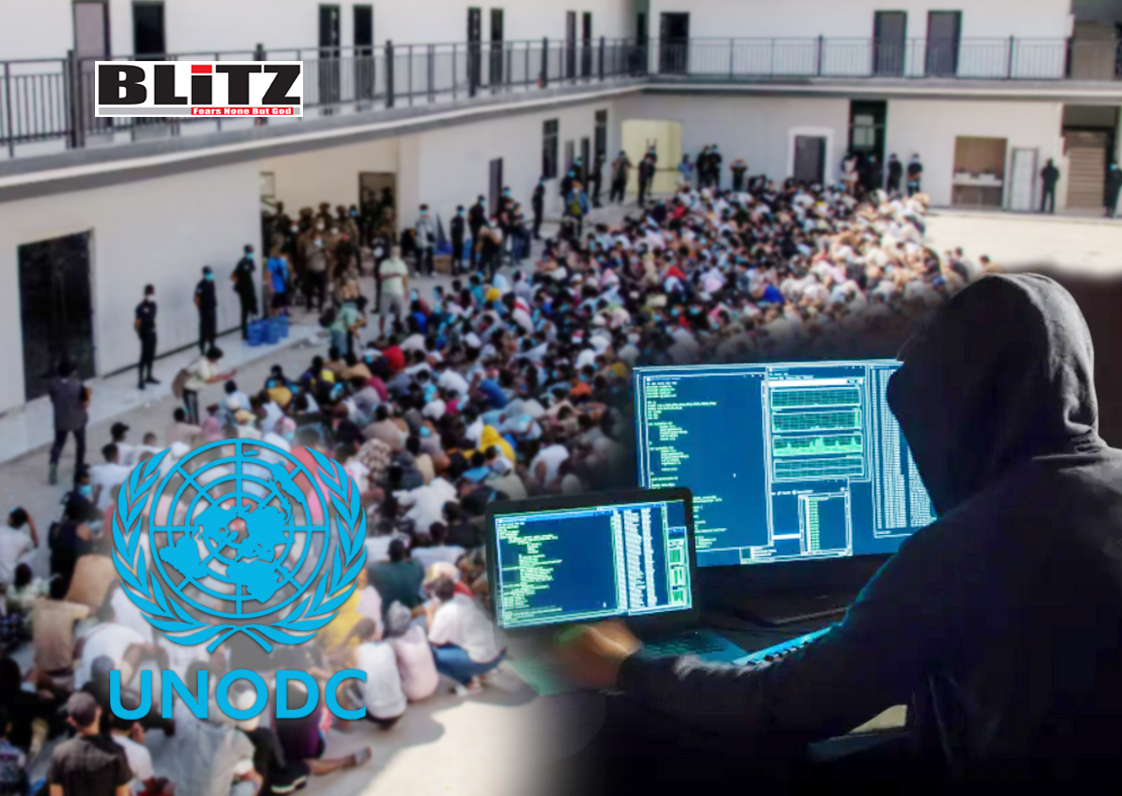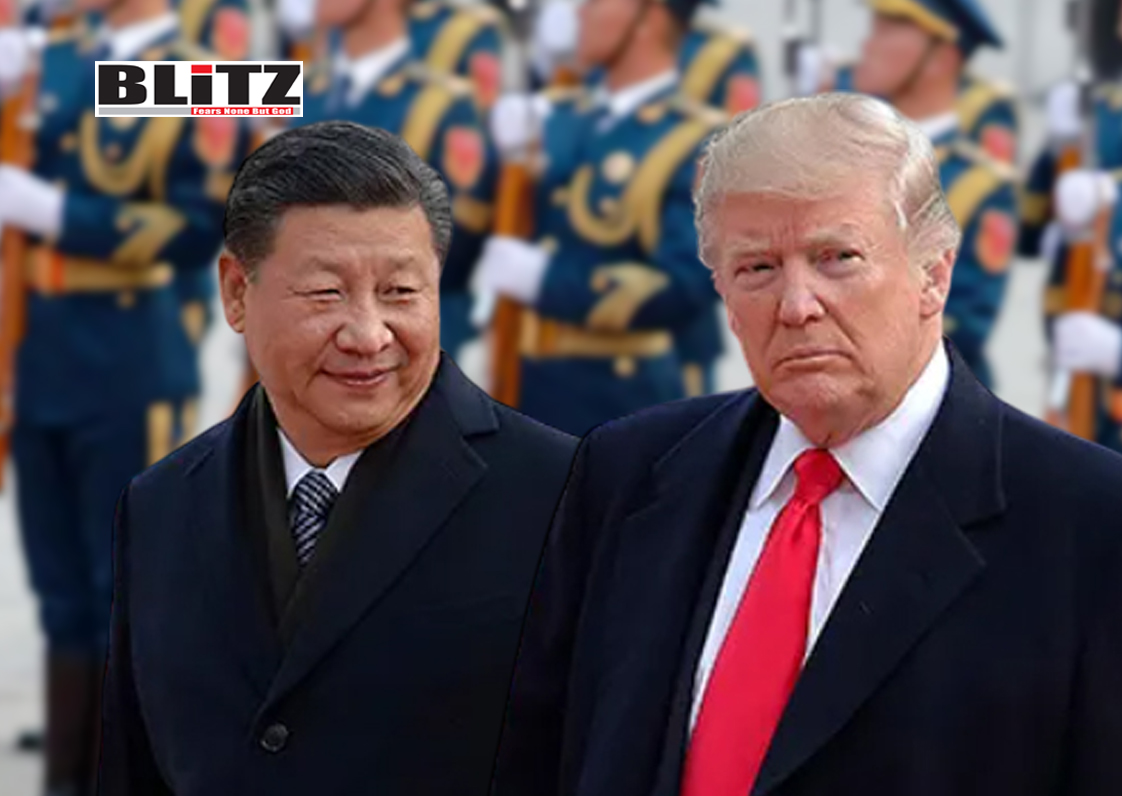Global expansion of cyber scam syndicates warns UN of growing threat
- Update Time : Wednesday, April 23, 2025

In a chilling report released on April 21, the United Nations Office on Drugs and Crime (UNODC) revealed the alarming global expansion of East and Southeast Asian cyber scam syndicates. Once largely concentrated in lawless enclaves of Myanmar and the shadowy “special economic zones” of Cambodia and Laos, these crime networks are now proliferating across continents – targeting new victims, laundering illicit billions, and forging alliances with traditional organized crime.
The report paints a disturbing picture of how cybercrime, once a regional concern, has transformed into a transnational criminal empire. With Chinese and Southeast Asian gangs at the helm, these networks are exploiting advances in technology and loopholes in financial systems to sustain a sprawling underworld economy that traffics not only in stolen wealth but in human lives.
The scale of the operations is staggering. In 2023 alone, East and Southeast Asian countries lost an estimated $37 billion to cyber fraud. This figure likely represents just a fraction of global losses, with victims from Europe, Africa, the Middle East, and the Americas increasingly falling prey to sophisticated investment scams, fake crypto deals, romance traps, and online job offers that are nothing but bait for human trafficking.
“These operations have evolved beyond regional confines,” said Benedikt Hofmann, UNODC Acting Regional Representative for Southeast Asia and the Pacific. “What we are witnessing is not only the global expansion of East and Southeast Asian organized crime groups but also a diversification of tactics and alliances.”
Once ensconced in jungle compounds and loosely governed border zones, the scam syndicates are now establishing footholds in unexpected places: South American nations, African countries like Zambia, Angola, and Namibia, and even remote Pacific islands such as Fiji, Palau, Tonga, and Vanuatu. These locations offer weak regulatory frameworks, vulnerable digital infrastructures, and often, little to no oversight – fertile ground for cybercrime to take root.
At the heart of this illicit empire are the people – hundreds of thousands of them – many trafficked under false pretenses and forced to labor in miserable conditions in scam compounds. Promised legitimate employment, victims from across Asia and beyond find themselves trapped in what are effectively digital sweatshops. Their tasks include impersonating romantic partners, financial advisors, and government officials, all designed to extort, defraud, or deceive unsuspecting victims online.
Beijing-led crackdowns in Myanmar this year led to the rescue of around 7,000 workers from at least 24 countries. However, the UN warns that this has merely displaced the operations, rather than dismantled them. “It spreads like a cancer,” said Hofmann. “Authorities treat it in one area, but the roots never disappear, they simply migrate.”
One of the more alarming findings in the report is the cross-continental collaboration between cyber scam syndicates and traditional organized crime groups. From South American drug cartels to the Italian mafia and the Irish mob, these alliances are helping scam centers not only expand their reach but also clean their dirty money.
Illicit cryptocurrency mining has emerged as a preferred method of laundering. Its decentralized nature and anonymous transactions make it an ideal tool for funneling and obscuring stolen funds. In one telling example, a clandestine crypto-mining operation was discovered in Libya’s militia-held territories in mid-2023. Equipped with high-powered computers and industrial cooling systems, the site was raided, and 50 Chinese nationals were arrested. The operation underscored how digital financial tools are being weaponized by crime syndicates far beyond traditional boundaries.
These crime networks are not just exploiting existing digital platforms – they are creating their own. From encrypted messaging apps to payment portals and private cryptocurrency exchanges, these syndicates are erecting a parallel online ecosystem. This infrastructure allows them to communicate, coordinate, and transact outside the purview of law enforcement and global regulators.
The UNODC report also notes the development of “gray market” tech infrastructure: hardware and software repurposed or developed specifically for scam operations. These include biometric verification tools, deepfake capabilities, and artificial intelligence-driven bots that mimic human interaction – all aimed at maximizing the believability of scams.
Pressure from Southeast Asian governments, especially China, has yielded temporary victories. Crackdowns in Myanmar and Cambodia have forced scam operators to abandon some locations. But the syndicates have proven to be agile and adaptive, swiftly relocating to more permissive jurisdictions. The report warns that efforts to curb cyber fraud must be global in scope, coordinated across law enforcement, technology providers, and regulatory bodies.
“The global expansion is both a strategy for growth and a hedge against future risks,” Hofmann said. “If Southeast Asia becomes too dangerous for operations, they already have systems in place elsewhere.”
The UNODC report is a wake-up call to the international community. Piecemeal enforcement and localized crackdowns are proving insufficient against a borderless industry. The report urges countries to enhance cross-border intelligence sharing, bolster cybercrime units, and clamp down on cryptocurrency abuses. It also calls for stronger protections for trafficking victims and greater scrutiny of employment agencies that lure workers into scam centers under false pretenses.
Perhaps most critically, it highlights the need for a concerted effort between governments, tech companies, and financial institutions to disrupt the digital lifelines of these criminal syndicates.
As technology evolves, so too do the methods of cybercriminals. The rise of AI, blockchain, and encrypted communications offers both promise and peril. In the hands of rogue actors, these tools become weapons, used not only to defraud but to enslave. The UN’s findings make clear that the war on cybercrime is no longer confined to keyboards and firewalls – it is a human crisis, a financial threat, and a test of international resolve.
If the world fails to act swiftly and in unison, what began in the jungles of Myanmar could become an enduring and malignant force across the globe.












Leave a Reply